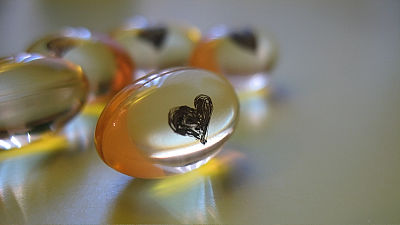The claim that 'the price of the drug is high is not to recover the research and development expenses of the pharmaceutical company'

In Japan, where medical treatment by public medical insurance is widespread, drug prices are finely regulated and managed. On the other hand, in the United States, drug prices are determined at the discretion of pharmaceutical companies and
Do Prescription Drugs Really Have to Be So Expensive?-The Atlantic
https://www.theatlantic.com/health/archive/20019/03/drug-prices-high-cost-research-and-development/585253/
Abiraterone, which is used to treat castration-resistant prostate cancer , was approved by the US Food and Drug Administration (FDA) in 2011. Abiraterone has successfully extended the median survival of castration-resistant prostate cancer patients by approximately 4 months in a phase III trial , but at least about $ 10,000 a month (approximately 10 months) to be administered in the United States It will cost 1.1 million yen).
Abiraterone is manufactured and sold by Johnson & Johnson under the brand name ' Zytigga '. Johnson & Johnson 'In the 2017 Janssen US Transparency Report ,' we must ensure that the sales of our drugs will provide the benefits we need to invest in future research and development. He states that high drug pricing is necessary to fund research projects that generate new drugs.

Drug prices that are too high have two negative effects. First of all, if the price of the medicine is too high, the treatment cost will naturally rise, and many patients will not be able to benefit from the medicine. According to a
The other is that high drug prices greatly influence research priorities. In the United States, many anticancer drugs are sold for $ 120,000 (approximately 13 million yen) to $ 150,000 (approximately 17 million yen), and it is said that more than 600 types of anticancer agents are in the testing stage. You are However, The Atlantic argues that in order to emphasize health benefits, research funding for antibiotics should be used rather than anti-cancer drugs.
Despite the concern over these negative effects, I do not know how to stay at high drug prices. American Health and Welfare Ministry, the amount spent on pharmaceuticals in the United States in 2016 that it more than four trillion dollars (about 510 trillion yen) estimation has been. This accounts for about 17.8% of US GDP (Gross Domestic Product), and is known to boast an overwhelmingly high ratio among the 10 developed countries that belong to the Organization for Economic Co-operation and Development (OCED).
A research team led by Peter Bach, a researcher at the Memorial Sloan Kettering Cancer Center, compared the prices of the top 20 drugs in the US against those in Europe and Canada. As a result, it was found that the accumulated revenue from the price difference of 20 types of drugs could cover most of the R & D expenses of medical products made by pharmaceutical companies. The Atlantic points out that most of this revenue goes to product marketing.

Many politicians have pledged to lower their drug prices, which are rising year by year, and President Donald Trump commented that drug prices are “unfair and unacceptable” against rising drug prices, expanding the price difference between medicines in the US and other countries. Said to stop quickly.
However, every time debate on drug prices soars at the parliamentary level, 'the fall in drug prices hinders innovative drug research' becomes an issue and considered the possibility of missing treatment for Alzheimer's disease and depression As a result, these reforms have stalled, The Atlantic points out. He added that 'American drug prices are extremely high and it is fraudulent to have high research costs to justify high drug prices.'

In order to curb soaring anticancer drugs and the need for analgesia morphine, Johnson & Johnson advocates the elimination of rebates to PBMs and insurance companies, to increase price transparency and reduce patient burdens And declared that. However, 'The true nature of drug prices soaring is not just recovery of research costs, but only monopoly prices, and the price should be controlled through price negotiation based on cost-benefit analysis and benefits,' the Atlantic claimed.
Related Posts:
in Note, Posted by log1i_yk







